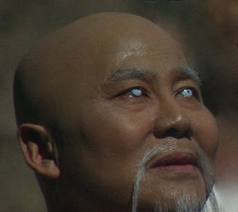@smcder
Yes, need to experience it. No, i certainly didnt experience doing the Dreikre exercises. Im wondering if TM is a good path.
I certainly believe the experience is real, but question the mystical explanations for it.
Turiya - Wikipedia, the free encyclopedia
Verse VII of the Mandukya Upanishad describes Turiya:
Turiya is not that which is conscious of the inner (subjective) world, nor that which is conscious of the outer (objective) world, nor that which is conscious of both, nor that which is a mass of consciousness. It is not simple consciousness nor is It unconsciousness. It is unperceived, unrelated, incomprehensible, uninferable, unthinkable and indescribable. The essence of the Consciousness manifesting as the self in the three states, It is the cessation of all phenomena; It is all peace, all bliss and non—dual. This is what is known as the Fourth (Turiya). This is Atman and this has to be realized.
[web 5]
Here is a materialist, reductive take on pure conscious events (PCEs).
http://www.usi.edu/libarts/phil/gennaro/papers/PureConsciousEvents.pdf
You mentioned a pre-articulated theory re levels of explanation. Would love to read it whenever.
SIX times the author uses "so called" ... ! and lots of things in ""s too. I feel a Sunday sermon coming on ...
It definitely is a take ... tell me what you took from the take?
I certainly believe the experience is real, but question the mystical explanations for it.
The experience is the explanation. The last thing a mystic probably thinks is that he/she is is a mystic, they don't give certificates in it and I'm guessing hardly ever thinks about providing a so-called "mystical explanation" for what simply is. It's the most ordinary thing in the world, really mundane stuff ... so in that frame of mind if you read something like the above materialist, reductive take by Gennaro, then you think , after all the cutting away and defining of discourse and what will and won't be allowed to be talked about and what the author's purposes are and how they can be distinguished from others in the field (always to the superiority of the author) in order to serve the various purposes of clarity, you think that
here is a truly mystical and paradoxical piece of writing - in fact, if I hadn't a good, stern upbringing in materialism I wouldn't be able to keep from floating away upon imbibing such heady stuff!
That's why I like to see equations - friend to mystic and rationalist alike. And if you don't read the equations (for example in the ANN article you posted) you will miss something.
Mystical writing is generally caveat-laden about how it can't be conveyed in words only to go on for volumes about it ... now to be fair I think some of this writing (
The Cloud of Unknowing I am most familiar with) serves lots of other purposes, is esoteric in the sense I posted above.
"Sham spirituality flourished in the mediaeval cloister, and offered a constant opportunity of error to those young enthusiasts who were not yet aware that the true freedom of eternity “cometh not with observation.” Affectations of sanctity, p. 22 pretense to rare mystical experiences, were a favourite means of advertisement. Psychic phenomena, too, seem to have been common: ecstasies, visions, voices, the scent of strange perfumes, the hearing of sweet sounds. For these supposed indications of Divine favour, the author of the
Cloud has no more respect than the modern psychologist: and here, of course, he is in agreement with all the greatest writers on mysticism, who are unanimous in their dislike and distrust of all visionary and auditive experience. Such things, he considers, are most often
hallucination: and, where they are not, should be regarded as the
accidents rather than the substance of the contemplative life—the harsh rind of sense, which covers the sweet nut of “pure ghostliness.” Were we truly spiritual, we should not need them; for our communion with Reality would then be the direct and ineffable intercourse of like with like."
Very ordinary stuff.


